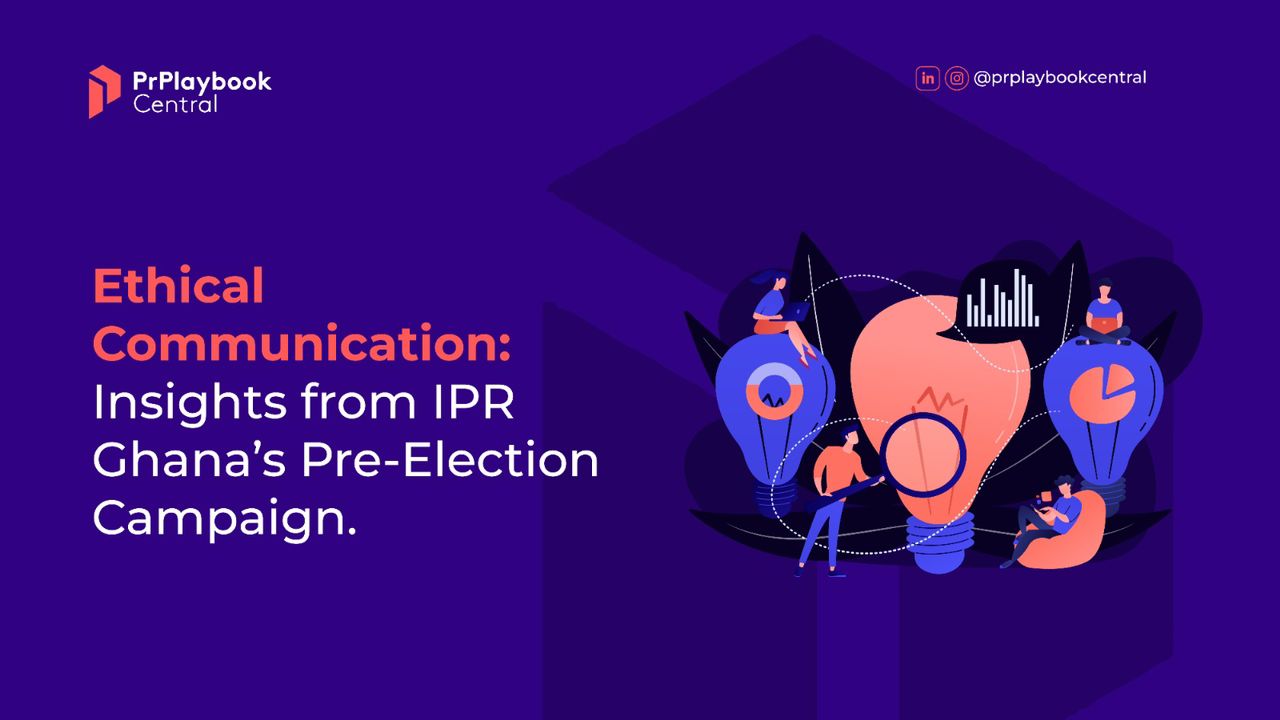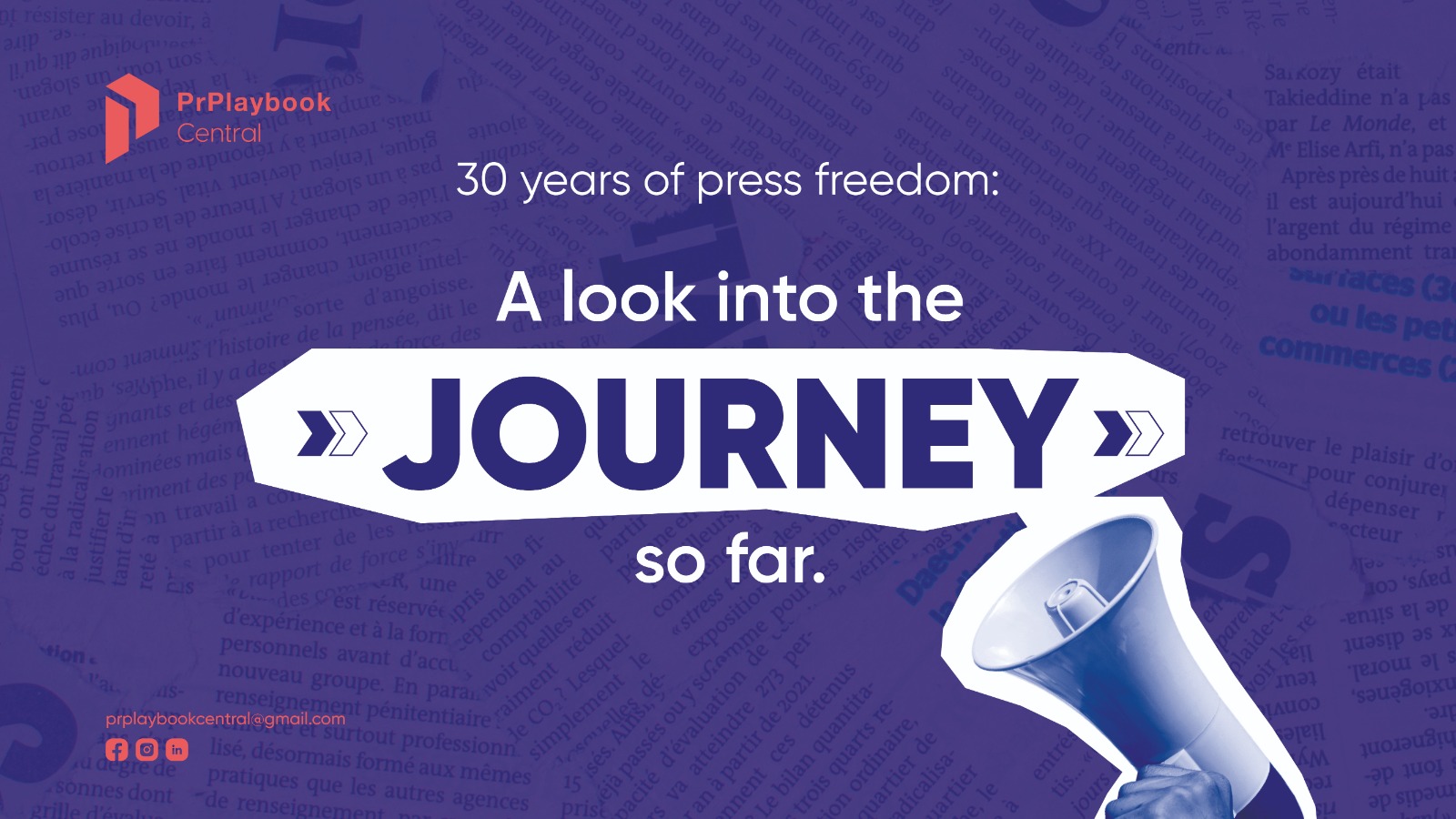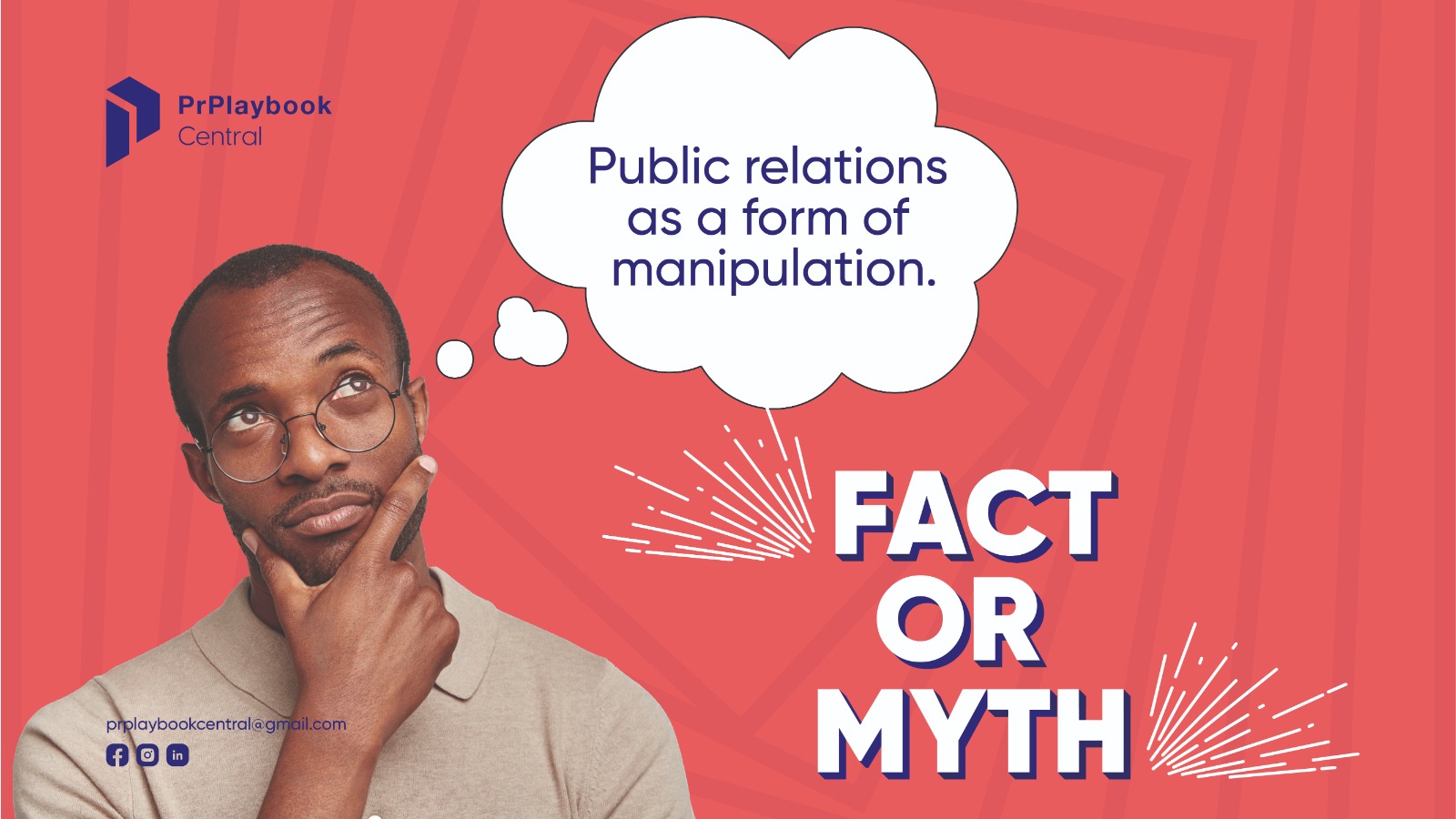
Building Trust and Unity Through Ethical Communication: Insights from IPR Ghana’s Pre-Election Campaign.
As Ghana gears up for its elections, there’s one undeniable truth: communication is more than just a tool for political engagement; it is the lifeblood of a healthy democracy. The country’s democratic history has seen periods of tension and, in some cases, violence. Ethical communication, especially in an election year, holds the power to unite or divide, to build trust or sow discord.
This year, the Institute of Public Relations (IPR) Ghana has launched its “Speak Truth For Peace” campaign that urges all Ghanaians, particularly political communicators, to adopt ethical practices in their political discourse. It is a call to ensure that the power of words fosters unity and peace. IPR Ghana’s focus on “Ethical Communication for Peace Building in an Election Year” is not just relevant; it is essential.
The Dangers of Misinformation and the Power of Truth
The advancement of information and communication technologies around the world has ushered in a digital era, revolutionizing politics, communication and electoral processes. In today’s digital world, where social media platforms amplify voices at lightning speed, the line between truth and falsehood has never been more unclear. Political campaigns often rely on the persuasive power of messaging, but this power can be misused. Misinformation, whether intentional or not; spreads like wildfire, creating divisions, sowing mistrust, and inciting violence in some cases.
This is why ethical communication is critical. The “Speak Truth For Peace” initiative reminds us that words matter. As Esther A. N. Cobbah, President of IPR Ghana and CEO Stratcomm Africa, aptly puts it, “Human beings can be moved to act in destructive ways based on falsehood, and so it is really important that everyone, particularly political communicators, recognize their duty to uphold truth for the good of society.” At no point is this truer than during an election, when the stakes are high, and the pressure to sway public opinion is intense.
When political communicators respect the truth, they lay the groundwork for a peaceful electoral process. The integrity of the election and the unity of the nation, depend on how the truth is treated. If candidates, parties, and their spokespeople take liberties with facts or, worse, engage in the deliberate spread of misinformation, democracy itself is at risk.
Media’s Role in Elections
The media’s role in elections is foundational to the health of a democratic society, as journalists and communicators present the competing perspectives, guide public opinion and help ensure voters make informed decisions. To fulfill this role constructively, accuracy and reliability are paramount. Journalists must prioritize verifying information before reporting it, cross-checking facts and sources to prevent the spread of misinformation. This commitment to accuracy protects the public from falsehoods that could mislead voters or damage the integrity of the election process. When the media are diligent in fact-checking, it strengthens voters trust and supports a peaceful environment.
Equally important is the need for balanced reporting that avoids sensationalism. In a time of heightened emotions, journalists and media outlets have a duty to present all sides of the story impartially, refraining from bias, sensationalized headlines, or emotive language. Focusing on objective, factual reporting enables voters to assess candidates and issues based on substance rather than spectacle, which promotes calm, informed decision-making rather than unnecessary tension.
Furthermore, the media should adhere to additional ethical considerations that reinforce their role as objective informers. Transparency is critical, journalists should clearly label opinion pieces to distinguish them from factual reporting so that audiences can distinguish between objective news and editorial perspectives. Accountability is another essential value that should characterize the work of the media; any errors must be acknowledged and corrected promptly, with clear explanations and apologies for mistakes. Finally, impartiality and maintaining fairness in coverage are key. Journalists and news organizations should avoid promoting specific candidates or parties, and must ensure that each side is given equitable attention and scrutiny.
The Role of Social Media: A Double-Edged Sword
Social media amplify the reach of political messages. While this offers unprecedented opportunities to engage, it also presents significant challenges. Social media’s immediacy often outpaces the verification of facts, creating an environment where misinformation can easily spread. In this landscape, political communicators face the challenge of balancing speed with accuracy.
IPR Ghana’s campaign urges communicators to be vigilant and responsible when using social media. “Speak Truth For peace” is a call for integrity in every message, post, and tweet. Communicators must strive to verify information before sharing it and work to correct false narratives that threaten the public’s trust.
At the same time, social media offer a unique opportunity to foster dialogue and build bridges across divides. Rather than exploiting the platforms for personal or partisan gain, communicators have a responsibility to use them as tools for promoting understanding, collaboration, and peace. Political leaders and their teams can lead the way by modeling respectful discourse, even in the face of disagreement.
Choice of Words and Manner of Expression
In any communication, it is not only the words we choose but also how we present them that truly shapes the message. This is where the three Vs of communication -“verbal, visual, and vocal” come into play. Together, they form the foundation of effective communication, influencing how messages are perceived and understood by the audience.
Vocal communication, or tone and delivery shapes how a message is received. A calm, measured tone conveys confidence, authority, and empathy, building trust and reassurance. Conversely, an aggressive tone can trigger distrust and division. In political discourse, where emotions run high, vocal delivery can either soothe tensions or inflame them. Using a tone of unity can encourage peaceful dialogue, while a harsh tone projects antagonism and provokes defensive reactions.
Visual communication, including body language and facial expressions, complements verbal and vocal cues. In political settings, a leader’s presentation can reinforce or contradict their message to the audience he seeks to win over. An approachable posture and open facial expressions convey sincerity and trustworthiness, making it more likely that audiences will be receptive to the message. Conversely, defensive gestures or hostile expressions create an impression of insincerity, fueling division.
Together, these elements shape how political messages are interpreted. Psychologically, audiences often absorb these cues unconsciously, forming opinions on the communicator’s trustworthiness and intent. Ethical communicators, aware of this impact can foster peace by ensuring their words, tone, and body language consistently convey truth, transparency, and respect. This alignment promotes constructive dialogue, supports peaceful elections, and strengthens national unity. Political leaders and communicators must be mindful of their word choices, as language significantly affects public perception and emotional responses.
In general, it is not just what we say, but how we say it, and how we look when we say it that we need to pay attention to. Clear, respectful language promotes peace, while inflammatory words can incite tension and conflict, undermining trust.
A Legacy of Ethical Communication
The true power of ethical communication extends far beyond the election day. If we, as a nation, commit to speaking truthfully and with respect, we are not just protecting the integrity of our elections; we are fostering a culture of national cohesion and unity that will endure long after the ballots are counted. As IPR Ghana emphasizes, “If we have no respect for the truth, then the whole edifice of our society is undermined.”
For Ghana to continue thriving as a beacon of democracy in Africa, it is crucial that we invest in ethical communication, not just during the election, but as a long-term commitment to peace, transparency, and mutual respect. PR professionals, political communicators, and everyday citizens alike must recognize their responsibility to uphold truth because, in the end, a nation that communicates with integrity is a nation that thrives.




